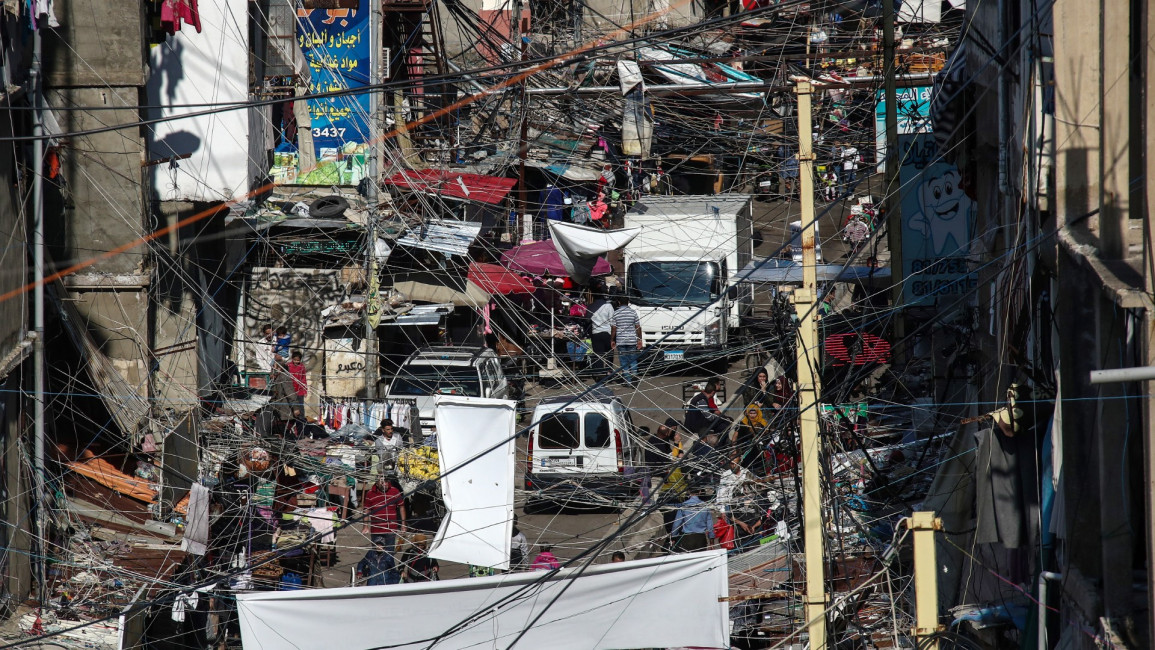Woman carrying baby killed in crossfire between 'rival drug gangs' in Palestinian camp in Lebanon
The woman was caught in a gun battle between suspected local drug dealers in the Shatila refugee camp in Beirut, according to a graphic video picked up by local media.
In the video, she can be seen carrying a child in her arms before being hit in the head by a bullet, leading her to fall to the ground.
She was taken to hospital but later died of her injuries, according to the state-run National New Agency. The child also suffered head injuries and remains in a critical condition in hospital.
Read also: Life in the camps: poverty, gangs and unemployment
The Shatila refugee camp was set up for Palestinians in 1949, after they were expelled from their homes during the creation of Israel.
Under labour laws in Lebanon, Palestinians are treated as foreign workers and are banned from establishing professional associations, owning properties, and denied the right to work in certain high-skilled professions.
According to UNRWA, 60 percent of Palestinians in Lebanon live below the poverty line, while 80 percent are unemployed.
Many analysts believe that the laws in Lebanon cripple Palestinians' chances of finding steady work and forces some youngsters into the hands of local militias and gangs to make a living.
Lebanese authorities have failed to address the problem, maintaining laws that make it difficult for Palestinians to find work outside their camps, further impeding the community's assimilation into Lebanese life.
Doing so, some politicians say, would further upset Lebanon's delicate confessional balance and work against the Palestinian demand of "right to return" to their homeland.
Follow us on Twitter and Instagram to stay connected



